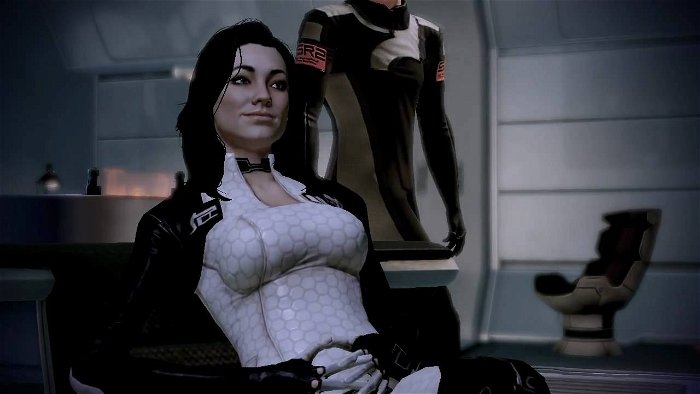On February 2nd, BioWare announced that they would be releasing “Mass Effect Legendary Edition” which will feature all three original games with enhanced performance, visuals, and graphics. Project director Mac Walters explained to Metro that the team wanted to provide all players with a more enhanced and overall better experience. Walters goes into detail about the female Shepherd and how “there was a lot of things that we could do across the trilogy to make that better, so that she’s a bit more on par with the male Shepherd”.
Of these changes, the one which stood out the most was not a change in character model, dialogue, or tone. During a personal and somber discussion with the character Miranda, the camera lingers on her rear end in a way that downplays the gravity of the scene. This led the developers to adjust where the camera was during this discussion. Naturally this became a topic of huge debate on whether or not this was necessary. On the one hand, people were saying to leave the game alone, claiming that this was censorship and that people are being “too sensitive” about this sort of thing. The other side of the debate was stating that scenes like this objectify the character with the sole purpose of focusing on her butt. And hence, the Mass Effect “butt-gate” was born.

This has sparked the debate about what is considered objectification and what is simply attraction or admiration for a character within a video game. Especially when it comes to female characters in video games.
Attraction is simply “the action or power of evoking interest, pleasure, or liking for someone.” Everyone experiences this, especially in video games since they not only offer so many different types of characters, but technology allows for near unrealistic levels of beauty. That is not an issue. Appreciation for a character’s look or design is completely fine. The problem arises when that same character is used explicitly in a sexual way for the sole purpose to gain that attention. Let’s use Mass Effect for an example; The character Miranda is beautiful and some may find her attractive. It is perfectly fine for those individuals to express that attraction in conversation, online, etc. The issue lies when the game itself focuses on Miranda’s butt for no reason beyond simple sex appeal. It is clearly a camera angle used to focus on features that people may find an attraction too and enjoy looking at, but it also reduces the quality and respect for her character by making her entirely about her body.
In Mass Effect 2, there is a scene where Miranda is talking to Commander Shepard about rescuing her family. This is an important scene, and Miranda is sharing intimate details about her family and her life with the commander and in turn, the players. However, during this important scene the decision was made to have the camera focus on Miranda’s butt rather than anything of substance to help engage the player and push this powerful narrative and character depth. The context of the scene is important but the delivery was more focused on portraying a character’s “physical features” rather than emotions, and here lies the issue.

This can also occur with male characters, but my focus is on female representation as that is what I am familiar with and can relate to. When a female character is used as an object in a sexual nature, it perpetuates the stereotype that females are an object and this is their sole purpose. This way of thinking can lead to the very real mistreatment of women as we are taught it is the social norm. If the media continues to showcase women in this light, the stereotype will continue. There are many instances where a female character’s entire identity and focus is on their body in a sexual nature. A great example of this is the legendary Lara Croft’s bust. While she is often viewed as attractive, the objectification is when the game focuses on their body in a sexual nature rather than focusing on the character as a person. It would take well over a decade before she was remodeled to human proportions.
Video games are a visual medium and have come a long way in terms of storytelling and graphics. If the controversy of Mass Effect’s change to this scene are any indication, we have some ways to go in terms of changing opinions. Studio’s are learning that representation matters and how a character is portrayed is important. It is a fine line between creating a sexy or attractive character in a video game and how you “showcase” them. There is nothing wrong with having character’s be attractive and wanted by people – visual design can silently speak volumes about a character – the issue occurs when that character is used as or perceived to be merely an object.
It is safe to say that everyone has, or will find a particular video game character attractive and at some point they have expressed, or will express, said attraction; be that face to face with friends or online with various comments. This is completely natural and something that can bring people together or spark discussion. The objectification, however, needs to stop. Character’s need to be treated as characters and not an object or device. The medium itself needs to take accountability and focus on honing the powerful storytelling and visually pleasing graphics for strong characters which we know they are capable of instead of relying on tropes of female sexuality. Keep the attractive characters – there is nothing wrong with that – but they should be so much more than a butt and chest to look at. Give us the thought provoking characters with substance rather than being seen as objects needs to be the norm.




